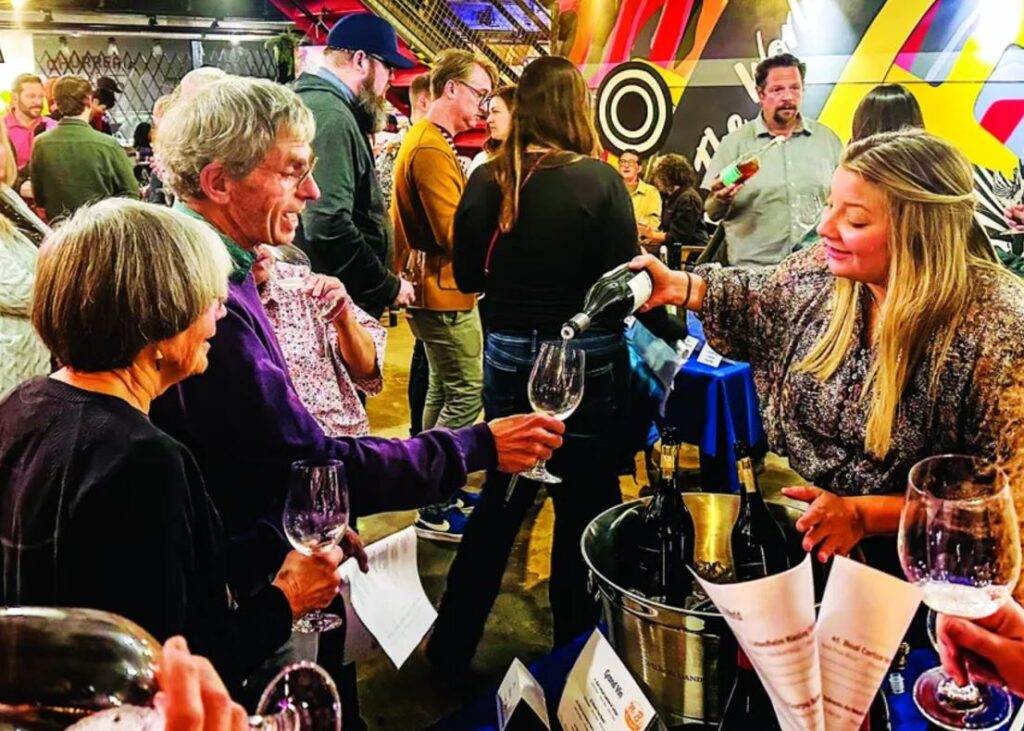Metro Wine and Spirits Shops Feeling Grocery Store Pressure after Prop 125 (Sentinel)
Kara Mason
November 25, 2024

“People are erring on the side of convenience and don’t think about the consequences of shopping for wine at the grocery store, but if you’re buying your wine at grocery stores, you’re supporting big corporations.”
On the heels of Election Day 2022, Megan Bennett and Geno Anaya marked their signatures on a five-year lease for Wine and Spirits Boutique, at 10355 E. Martin Luther King Jr. Blvd., across from the King Soopers store in Denver’s Central Park neighborhood.
“We were in it to win it,” Bennett says. But just as the duo had committed to a new business venture, so had Colorado voters to let grocery stores across Colorado sell wine, fundamentally changing how Wine and Spirits Boutique would do business.
Proposition 125 passed in 2022 with 51% of the vote. Two other alcohol-related ballot questions—raising the number of liquor licenses that a single store owner could hold and allowing retail establishments to sell liquor offsite and offer takeout and delivery—failed by close margins. The following March, wine began appearing on grocery shelves across the state, prompting Bennett, Anaya, and several other independent liquor store owners to shift their sales and marketing strategies.
“The grocery stores are changing their lineup about twice a year, so we don’t know what they’re going to pick the next time that they decide to change things up,” Anaya says. “So, when we talk to our distributors, we do try to select smaller vineyards that won’t mass produce wine, so it’ll never find its way into a grocery store.”
Bennett believes that no matter what they do, they won’t be able to win over all shoppers who find buying wine at a grocery store easier and more convenient. Others, she says, will always support smaller businesses.
Proponents of the change said consumer convenience was the driving force behind the movement, while independent liquor stores feared they’d lose customers and face even tougher times following the Covid-19 pandemic and the expansion of beer sales in grocery stores in 2019.
Liquor store owners across the northeast Denver metro region say that, two years after the vote, they’re feeling the pressure from Prop. 125, but continue to offer experiences and expertise that grocery stores cannot.
“I don’t think there’s a specialty store that hasn’t been affected by it,” says Ryan Corey, director of operations at Mr. B’s Wine and Spirits, which has a location at Stanley Marketplace in northwest Aurora. “People are erring on the side of convenience and don’t think about the consequences of shopping for wine at the grocery store, but if you’re buying your wine at grocery stores, you’re supporting big corporations.”
As a result of Prop. 125, Mr. B’s has leaned even further into offering organic, all-natural wines that shoppers won’t find in grocery stores.
“There’s nothing unique about those mass-produced bottles of wine,” Corey adds. “We’re doing our best to educate consumers that convenience isn’t everything.”
While Corey says he can’t pinpoint exactly how much revenue has been negatively affected by Prop. 125, he believes it to be “significant.”

